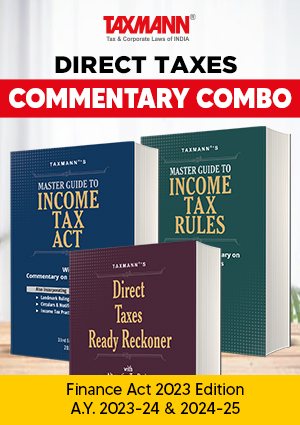AO Can’t Raise Tax Demand After Co. Was Revived and Rehabilitated by New Management Under IBC
- News|Blog|Income Tax|
- 2 Min Read
- By Taxmann
- |
- Last Updated on 2 July, 2024

Case Details: National Sewing Thread Co. Ltd. vs. Deputy Commissioner of Income-tax - [2024] 163 taxmann.com 768 (Delhi)
Judiciary and Counsel Details
- Mini Pushkarna & Dharmesh Sharma, JJ.
- Palash S. Singhai, Adv. for the Petitioner.
Facts of the Case
The assessee company underwent a Corporate Insolvency Resolution Process (CIRP). Subsequently, NCLT granted approval of the resolution plan under IBC, and new management revived and rehabilitated the company. Meanwhile, the Assessing Officer (AO) issued a notice under Section 143(3) of the Act to the assessee for the year under which it was under the CIRP.
The assessee contended that the notice was issued after the NCLT approved the Resolution Plan for the revival and restructuring. Aggrieved by the notice, the assessee filed a writ petition before the Delhi High Court.
High Court Held
The High Court held that the NCLT, Chennai, allowed the application seeking initiation of the CIRP of the assessee and moratorium under Section 14 of the IBC, 2016 came into force. Subsequently, the CIRP of the assessee culminated successfully, wherein the Resolution Plan for the revival and rehabilitation of the assessee was submitted, and the same was accordingly approved by the Committee of Creditors (COC) with the requisite majority of votes.
After that, the Resolution Plan and the necessary reliefs and concessions, including extinguishing all the past dues and claims not forming part of the Resolution Plan on the approval date, was finalised. It was noted that upon the Resolution Plan’s approval, new management took over the assessee to implement it as per the IBC scheme on a ‘Clean Slate Basis’.
It is a settled proposition of law that once a Resolution Plan is duly approved by the adjudicating authority under Section 31 (1) of IBC, 2016, the claims as provided in the Resolution Plan shall stand frozen, and it will be binding on the corporate debtor and its employees, members, creditors, including the Central Government, any State Government or any local authority, guarantors and other stakeholders. On the date of approval of the Resolution Plan by the adjudicating authority, all such claims that are not part of the Resolution Plan shall stand extinguished, and no person will be entitled to initiate or continue any proceedings with respect to a claim that is not part of the Resolution Plan.
The law is well settled that once the COC approves a Resolution Plan, it is binding on all stakeholders. Thus, the successful Resolution Applicant starts running the Corporate Debtor’s business on a fresh slate. Therefore, the Assessment Order and Notice were set aside.
Disclaimer: The content/information published on the website is only for general information of the user and shall not be construed as legal advice. While the Taxmann has exercised reasonable efforts to ensure the veracity of information/content published, Taxmann shall be under no liability in any manner whatsoever for incorrect information, if any.

Taxmann Publications has a dedicated in-house Research & Editorial Team. This team consists of a team of Chartered Accountants, Company Secretaries, and Lawyers. This team works under the guidance and supervision of editor-in-chief Mr Rakesh Bhargava.
The Research and Editorial Team is responsible for developing reliable and accurate content for the readers. The team follows the six-sigma approach to achieve the benchmark of zero error in its publications and research platforms. The team ensures that the following publication guidelines are thoroughly followed while developing the content:
- The statutory material is obtained only from the authorized and reliable sources
- All the latest developments in the judicial and legislative fields are covered
- Prepare the analytical write-ups on current, controversial, and important issues to help the readers to understand the concept and its implications
- Every content published by Taxmann is complete, accurate and lucid
- All evidence-based statements are supported with proper reference to Section, Circular No., Notification No. or citations
- The golden rules of grammar, style and consistency are thoroughly followed
- Font and size that’s easy to read and remain consistent across all imprint and digital publications are applied




